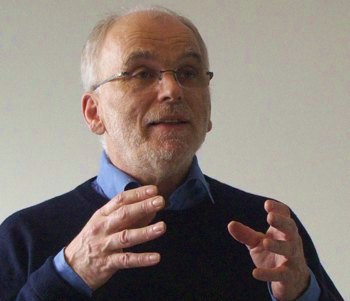|
A.S.S.E.Psi.
web site (History of Psychiatry and Psychoanalytic Psychotherapy
)
A.S.S.E.Psi.NEWS
(to subscribe our monthly newsletter)
Ce.Psi.Di. (Centro
di Psicoterapia Dinamica "Mauro Mancia")
Maitres
à dispenser (Our reviews about psychoanalytic congresses)
Biblio
Reviews (Recensioni)
Congressi
ECM (in italian)
Events
(our congresses)
Tatiana Rosenthal
and ... other 'psycho-suiciders'
Thalassa.
Portolano of Psychoanalysis
PsychoWitz - Psychoanalysis and Humor (...per ridere un po'!)
Giuseppe Leo's Art
Gallery
Spazio
Rosenthal (femininity and psychoanalysis)
Psicoanalisi
Europea Video
Channel
A.S.S.E.Psi. Video
Channel
Ultima uscita/New issue:

"Psicoanalisi in Terra Santa"
Edited
by/a cura di: Ambra Cusin & Giuseppe Leo
Prefaced by/prefazione
di:
Anna Sabatini Scalmati
Writings by/scritti di:
H. Abramovitch A. Cusin M. Dwairy A. Lotem M.
Mansur M. P. Salatiello Afterword
by/ Postfazione
di:
Ch. U. Schminck-Gustavus
Notes by/ Note di: Nader Akkad
Editore/Publisher: Edizioni Frenis Zero
Collection/Collana: Mediterranean
Id-entities
Anno/Year:
2017
Pagine/Pages:
170
ISBN:978-88-97479-12-3

"Essere bambini a Gaza. Il trauma
infinito"
Authored
by/autore: Maria Patrizia Salatiello
Editore/Publisher: Edizioni Frenis Zero
Collection/Collana: Mediterranean
Id-entities
Anno/Year:
2016
Pagine/Pages:
242
ISBN:978-88-97479-08-6

Psychoanalysis,
Collective Traumas and Memory Places (English Edition)
Edited
by/a cura di: Giuseppe Leo Prefaced by/prefazione
di:
R.D.Hinshelwood
Writings by/scritti di: J. Altounian
W. Bohleber J. Deutsch
H. Halberstadt-Freud Y. Gampel
N. Janigro R.K. Papadopoulos
M. Ritter S. Varvin H.-J. Wirth
Editore/Publisher: Edizioni Frenis Zero
Collection/Collana: Mediterranean
Id-entities
Anno/Year:
2015
Pagine/Pages:
330
ISBN:978-88-97479-09-3

"L'uomo
dietro al lettino" di
Gabriele Cassullo
Prefaced
by/prefazione di: Jeremy
Holmes
Editore/Publisher: Edizioni Frenis Zero
Collection/Collana: Biografie
dell'Inconscio
Anno/Year:
2015
Pagine/Pages:
350
ISBN:978-88-97479-07-9
Prezzo/Price:
€ 29,00
Click
here to order the book
(per Edizione
rilegata- Hardcover clicca qui)

"Neuroscience
and Psychoanalysis" (English Edition)
Edited by/a cura di: Giuseppe Leo Prefaced by/prefazione
di: Georg Northoff
Writings by/scritti di: D. Mann
A. N. Schore R. Stickgold
B.A. Van Der Kolk G. Vaslamatzis M.P. Walker
Editore/Publisher: Edizioni Frenis Zero
Collection/Collana: Psicoanalisi e neuroscienze
Anno/Year: 2014
Pagine/Pages: 300
ISBN:978-88-97479-06-2
Prezzo/Price: € 49,00
Click
here to order the book

Vera
Schmidt, "Scritti su psicoanalisi infantile ed
educazione"
Edited by/a cura di: Giuseppe Leo Prefaced by/prefazione
di: Alberto Angelini
Introduced by/introduzione di: Vlasta Polojaz
Afterword by/post-fazione di: Rita Corsa
Editore/Publisher: Edizioni Frenis Zero
Collana: Biografie dell'Inconscio
Anno/Year: 2014
Pagine/Pages: 248
ISBN:978-88-97479-05-5
Prezzo/Price: € 29,00
Click
here to order the book

Resnik,
S. et al. (a cura di Monica Ferri), "L'ascolto dei
sensi e dei luoghi nella relazione terapeutica"
Writings by:A.
Ambrosini, A. Bimbi, M. Ferri, G.
Gabbriellini, A. Luperini, S. Resnik,
S. Rodighiero, R. Tancredi, A. Taquini Resnik,
G. Trippi
Editore/Publisher: Edizioni Frenis Zero
Collana: Confini della Psicoanalisi
Anno/Year: 2013
Pagine/Pages: 156
ISBN:978-88-97479-04-8
Prezzo/Price: € 37,00
Click
here to order the book
Silvio
G. Cusin, "Sessualità e conoscenza"
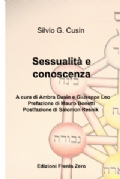
A cura di/Edited by: A. Cusin & G. Leo
Editore/Publisher: Edizioni Frenis Zero
Collana/Collection: Biografie dell'Inconscio
Anno/Year: 2013
Pagine/Pages: 476
ISBN: 978-88-97479-03-1
Prezzo/Price:
€ 39,00
Click
here to order the book
AA.VV.,
"Psicoanalisi e luoghi della riabilitazione", a cura
di G. Leo e G. Riefolo (Editors)
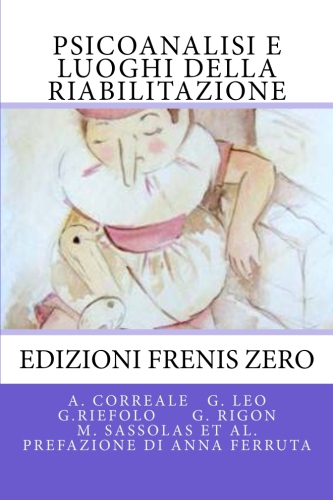
A cura di/Edited by: G. Leo & G. Riefolo
Editore/Publisher: Edizioni Frenis Zero
Collana/Collection: Id-entità mediterranee
Anno/Year: 2013
Pagine/Pages: 426
ISBN: 978-88-903710-9-7
Prezzo/Price:
€ 39,00
Click
here to order the book
AA.VV.,
"Scrittura e memoria", a cura di R. Bolletti (Editor)

Writings by: J.
Altounian, S. Amati Sas, A. Arslan, R. Bolletti, P. De
Silvestris, M. Morello, A. Sabatini Scalmati.
Editore/Publisher: Edizioni Frenis Zero
Collana: Cordoglio e pregiudizio
Anno/Year: 2012
Pagine/Pages: 136
ISBN: 978-88-903710-7-3
Prezzo/Price: € 23,00
Click
here to order the book
AA.VV., "Lo
spazio velato. Femminile e discorso
psicoanalitico"
a cura di G. Leo e L. Montani (Editors)
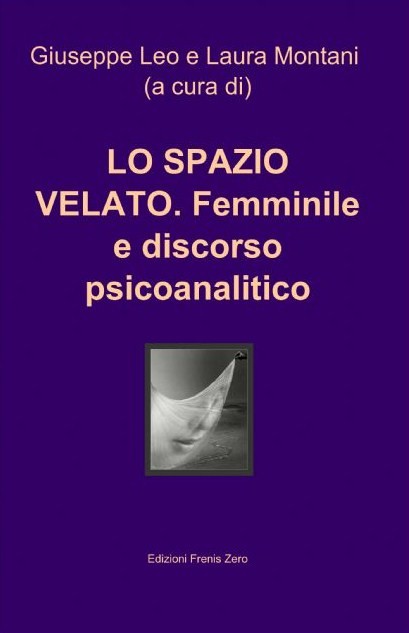
Writings by: A.
Cusin, J. Kristeva, A. Loncan, S. Marino, B.
Massimilla, L. Montani, A. Nunziante Cesaro, S.
Parrello, M. Sommantico, G. Stanziano, L.
Tarantini, A. Zurolo.
Editore/Publisher: Edizioni Frenis Zero
Collana: Confini della psicoanalisi
Anno/Year: 2012
Pagine/Pages: 382
ISBN: 978-88-903710-6-6
Prezzo/Price: € 39,00
Click
here to order the book
AA.VV., Psychoanalysis
and its Borders, a cura di
G. Leo (Editor)

Writings by: J. Altounian, P.
Fonagy, G.O. Gabbard, J.S. Grotstein, R.D. Hinshelwood, J.P.
Jimenez, O.F. Kernberg, S. Resnik.
Editore/Publisher: Edizioni Frenis Zero
Collana/Collection: Borders of Psychoanalysis
Anno/Year: 2012
Pagine/Pages: 348
ISBN: 978-88-974790-2-4
Prezzo/Price: € 19,00
Click
here to order the book
AA.VV.,
"Psicoanalisi e luoghi della negazione", a cura di A.
Cusin e G. Leo

Writings by:J.
Altounian, S. Amati Sas, M. e M. Avakian, W. A.
Cusin, N. Janigro, G. Leo, B. E. Litowitz, S. Resnik, A.
Sabatini Scalmati, G. Schneider, M. Šebek,
F. Sironi, L. Tarantini.
Editore/Publisher: Edizioni Frenis Zero
Collana/Collection: Id-entità mediterranee
Anno/Year: 2011
Pagine/Pages: 400
ISBN: 978-88-903710-4-2
Prezzo/Price: € 38,00
Click
here to order the book
"The Voyage Out" by Virginia
Woolf

Editore/Publisher: Edizioni Frenis Zero
ISBN: 978-88-97479-01-7
Anno/Year: 2011
Pages: 672
Prezzo/Price: € 25,00
Click
here to order the book
"Psicologia
dell'antisemitismo" di Imre Hermann

Author:Imre Hermann
Editore/Publisher: Edizioni Frenis Zero
ISBN: 978-88-903710-3-5
Anno/Year: 2011
Pages: 158
Prezzo/Price: € 18,00
Click
here to order the book
"Id-entità mediterranee.
Psicoanalisi e luoghi della memoria" a cura di Giuseppe Leo
(editor)
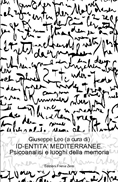
Writings by: J.
Altounian, S. Amati Sas, M. Avakian, W. Bohleber, M. Breccia, A.
Coen, A. Cusin, G. Dana, J. Deutsch, S. Fizzarotti Selvaggi, Y.
Gampel, H. Halberstadt-Freud, N. Janigro, R. Kaës, G. Leo, M.
Maisetti, F. Mazzei, M. Ritter, C. Trono, S. Varvin e H.-J. Wirth
Editore/Publisher: Edizioni Frenis Zero
ISBN: 978-88-903710-2-8
Anno/Year: 2010
Pages: 520
Prezzo/Price: € 41,00
Click
here to have a preview
Click
here to order the book
"Vite soffiate. I vinti della
psicoanalisi" di Giuseppe Leo
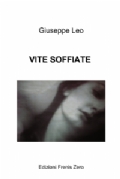
Editore/Publisher: Edizioni Frenis Zero
Edizione: 2a
ISBN: 978-88-903710-5-9
Anno/Year: 2011
Prezzo/Price: € 34,00
Click
here to order the book
"La Psicoanalisi e i suoi
confini" edited by Giuseppe Leo
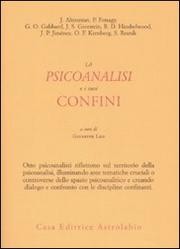
Writings by: J.
Altounian, P. Fonagy, G.O. Gabbard, J.S. Grotstein, R.D.
Hinshelwood, J.P. Jiménez, O.F. Kernberg, S. Resnik
Editore/Publisher: Astrolabio Ubaldini
ISBN: 978-88-340155-7-5
Anno/Year: 2009
Pages: 224
Prezzo/Price: € 20,00
"La Psicoanalisi. Intrecci Paesaggi
Confini"
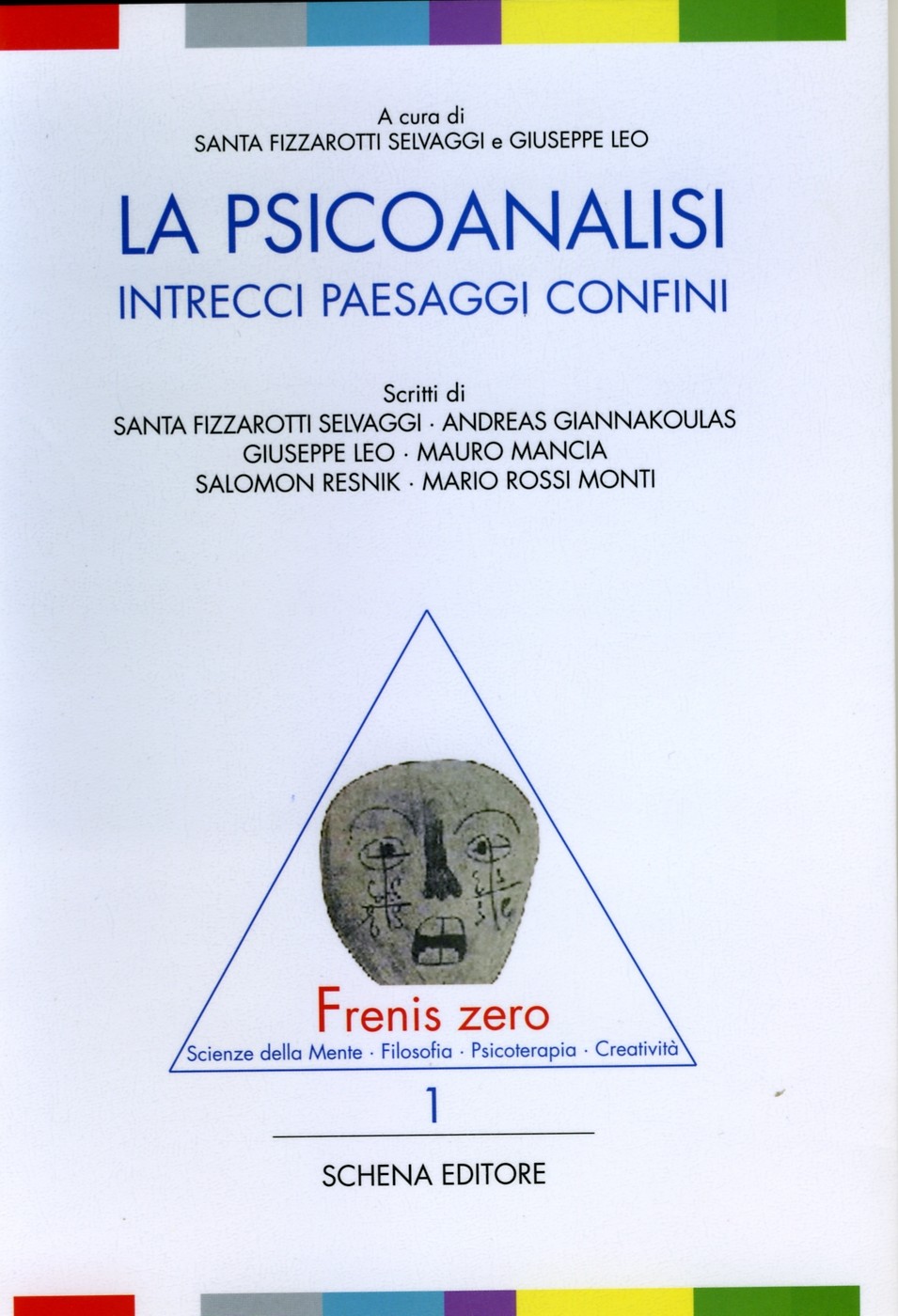
Edited by S. Fizzarotti Selvaggi, G.Leo.
Writings by: Salomon Resnik, Mauro Mancia, Andreas Giannakoulas,
Mario Rossi Monti, Santa Fizzarotti Selvaggi, Giuseppe Leo.
Publisher: Schena Editore
ISBN 88-8229-567-2
Price: € 15,00
Click here to order the
book |
Introduction
Fundamentalism
has increasingly become a part of the political discourse in western
countries and is presently to a large degree associated with Islamic
Jihadism. Fundamentalism has, however, been a concern in all religions,
especially in Christianity where the term has its origin more than 100
years ago. The concerns were how not to lose hold of the fundaments
without which there could not be a proper belief system. Fundaments
was seen as the necessary minimum, to which further elaboration may or
may not be added; on other words, the essential.
That
adherence to fundaments may develop into fundamentalism, understood as
rigid adherence to basic principles, has,
however, seldom been on the agenda in professional and
scientific contexts. As tight groups with string inner cohesion may
develop within professional and scientific organisations, it should
not be a surprise that fundamentalist tendencies may develop in these
groups as well. Any organisation that deals with fundaments or have an
idea about the essentials may fall prey to fundamentalist tendencies.
Psychoanalysis is a case in question here and reflection on the
relation between fundaments of psychoanalysis and possible
fundamentalist tendencies may thus give insight into possible basic
problems within psychoanalysis, a profession that has both scientific
claims and practical-clinical tasks. These reflections may, however,
also open for general considerations on the relation between
fundaments and fundamentalism.
Fundaments
in psychoanalysis
Psychoanalysis
developed in the last century into a diverse field with several
schools and traditions, all with their own language or dialect and
often with quite diverse and at times idiosyncratic understanding of
central concepts. In a conceptual research on two psychoanalytic
concepts, enactment and unconscious phantasy, it was at times
difficult to discern similarities and common ground across different
schools
(Bohleber
et al., 2015, Bohleber et al., 2013)
. It was also
amazing to observe to what degree different schools avoided citing
each other, confirming an impression of tribalism, a core mark of
fundamentalism.
Controversies
have sometimes led to splitting of psychoanalytic groups. These splits
have certainly been multi-determined, where personal animosity,
institutional rivalry, ideological forces from without and societal
conditions play a role alongside theoretical controversies. Having
observed some of them close up have,
however, increased my respect for how unconscious forces develops in
groups. Primitive defences like splitting and projective
identifications, idealisation and mere denial has prevailed in spite
of the protagonists’ presumably solid psychoanalytic training and
thorough personal analysis. In the heat of the battles the ability for
rational argument and mentalisation tend to get lost – and this
condition may prevail for such a long time that the history of the
original conflict and split may almost be forgotten.
Heated
debates and severe antagonisms are of course not particular for
psychoanalysis and can be seen in any profession. During my time in
psychoanalysis and in my work for IPA there has been a marked
improvement of the intellectual debate, but still arguments flourish
that deem other positions as dangerous or damaging to psychoanalysis;
a “we-them” discourse typical for fundamentalist movements.
Research
is a case of matter here. There has, as we know, been a long struggle
to get acceptance for formal research in psychoanalysis and there are
regional and other differences regarding the value or even the
potential damage ascribed to research.
One
example: there is quit solid research showing that transference
interpretations are useful for patients with more severe personality
pathologies, but less important for neurotic disturbances.
Interpretations should be used with caution also for personality
disturbances and some researchers came up with the advice that not
more than 1-4 interpretations per session is to be recommended
(Høglend,
2014)
. Clinicians may
dismiss this finding as it is expressed in a mechanistic, formal
scientific language that certainly would not fit with psychoanalytic
approaches focusing on the here-and-now and the indeterminism of the
analysand-analyst relationship. The clinician’s difficulties with
empirical research are, in addition to troubles inherent in
understanding the logic of arguments in other disciplines, related to
a problem of language or rather dialect; clinical psychoanalysis and
empirical research are expressed in quite different languages even if
they concern same clinical problems. There are also reciprocal
difficulties and even unwillingness to learn the other group’s
language. Shahar makes in this connection a heuristic distinction
calling the language of psychoanalysis the
language of poetics and says that research represents a schematic
language
(Shahar,
2010)
. Either language,
or dialect, is useful in relation to their respective domains and
valid in relations to their objects of study. They do not, however,
communicate very well. Concrete reception of such research findings
(“this is senseless”), expressed in the other’s language, (e.g.
counting of interpretations in sessions), may easily lead to stricter
adherence to “psychoanalytic fundamentals” and has as a
consequence an impediment to reciprocal understanding and also to the
development in each fields of inquiry.
It
represents an example of shielding oneself from being influenced by
“the other” or from something outside, one of the salient figures
in fundamentalism to which I will return later.
The
question in the background may then be to what degree psychoanalytic
societies and institutions as well as its members are prone to be
caught in the lures of fundamentalist attitudes or, as I will call it,
fundamentalist states of mind or fundamentalist mindset. These are
states of mind that avoid ambiguity, deplores diversity with a more or
less prominent tendency to manichaeistic thinking (a dualistic
cosmology
describing the struggle
between a good,
spiritual world of light, and an evil,
material world of darkness).
It
can be argued that such states of mind tend to develop within
basic-assumption groups
(Bion,
1961)
and as such are a
danger in every group formation and group process. Fundamentalism
become a symptom of anxiety for the group’s cohesion. If
psychoanalysis develops an ideology that advocates adherence to
fundamentals, this will then represent an illusory way to safeguard
the group’s cohesion.
In
general, this may count for all kinds of fundamentalist tendencies in
groups. Fundamentalism understood in this way is a question of degrees
and may be related to certain critical phases or crisis in a groups’
developmental process, and the group may when this has been worked
through return to more normal business of rational argumentation.
I
will argue, however, that there are situations that we may call the fundamentalist
trap. This is not always easy to identify and may have devastating
influences on a group or an organization’s development. Such a trap
may develop in any group – also psychoanalytic. In other words, when
keeping the fundamentals in mind, the danger is that this may develop
into a belief in fundamentals, and as with any belief, an atmosphere may
develop where fundamentals should not be questioned.
When
fundamental traps become a characteristic of a group, a conviction may
develop that someone has deviated from the essentials, that they are
absolutely wrong, that the influences from them will shake the
fundaments and harm the cohesion of the group, accompanied by a
predominance of dualistic thinking and lack of rational argumentation.
Having
thus stated that fundamentalism is an inherent possibility also on the
psychoanalytic scene, I will in the following discuss fundamentalism
on a quite different scene, a scene where the basic problems of
fundamentalism may be seen through a magnifying glass. This concerns
fundamentalism as it appears in political and religious movements,
especially in present Islamist movements. On this basis, one may get a
clearer view on the relation between fundaments and fundamentalism.
| (end
of part 1 - the whole paper is to be published inside a next
Frenis Zero publisher's book) |
|
| |
References:
BION, W. R. 1961. Experiences in
Groups., London, Tavistock Publications.
BOEHNKE,
K. 1998. On the developement of xenophobia in Germany: the adolescent
years. Journal of Social Issues.
BOHLEBER,
W. 2002. Kollektive Phantasmen, Destruktivität und Terrorismus. Psyche,
56, 699-720.
BOHLEBER,
W. 2010. Destructiveness, intersubjectivity and trauma, London, Karnac.
BOHLEBER,
W., FONAGY, P., JIMENEZ, J. P., SCARFONE, D., VARVIN, S. & ZYSMAN,
S. 2013. Towards a better use of psychoanalytic concepts: A model
illustrated using the concept of enactment. International
Journal of Psychoanalysis, 94,
501-530.
BOHLEBER,
W., JIMENEZ, J., SCARFONE, D., VARVIN, S. & ZYSMAN, S. 2015.
Unconscious phantasy and its conceptualizations: An attempt at
conceptual Integration. International Journal of Psychoanalysis,
96, 705-730.
BORCHREVINK,
A. S. 2012. En norsk tragedie.
Anders Behring Breivik og veiene til Utøya, Oslo, Gyldendal.
BROWNING,
C. R. 1998. Ordinary Men. Reserve Police Battalion 101 and the Final Solution in
Poland, New York, HarperPerennial.
BURUMA,
I. & MARGALIT, A. 2004. Occidentalism.
The West in the Eyes of their Enemies, New York, The Penguin
Press.
CRICKLEY,
A., WINKLER, B. 2006. The Annual
Report on the Situation regarding Racism and Xenophobia in the Member
States of the EU [Online]. European Monitoring Centre on Racism
and Xenophobia. Available: http://fra.europa.eu/fra/material/pub/ar06/AR06-P2-EN.pdf
[Accessed].
FEKETE,
L. 2009. A suitable enemy. Racism, Migration and Islamophobia in Europe, London,
Pluto Press.
FREUD,
S. 1939. Der Mann Moses und die Monotheistischen Religion: Drei
Abhandlungen. Sigmund
Freud Studienausgabe. Bd IX. Frankfurt am Main: S. Fischer Verlag.
GEISSER,
V. 2004. Islamophobia in Europe: from the Christian anti-Muslim
prejudice to a modern form of racism. In:
RAMBERG, I. (ed.) Islamophobia
and its consequences on Young People. European. Budapest: Youth
Centre Budapest 1–6 June 2004: Council of Europe.
HEATH-KELLY,
C. 2013. Counter-Terrorism and the Counterfactual: Producing the
‘Radicalisation’ Discourse and the UK PREVENT Strategy. The
British Journal of Politics & International Relations, 15,
394-415.
HEINE,
P. 2002. In Allahs Namen: Religiös motivierter Extremismus und
Terrorismus. In: FRANK, H.
& HIRSCHMAN, K. (eds.) Die
weltweite Gefahr. Terrorismus als internationale Herausforderung.
Berlin: Berlin Verlag Arno Spitz GmbH.
HØGLEND,
P. 2014. Exploration of the Patient-Therapist Relationship in
Psychotherapy. Am J Psychiatry, 171,
1056-1066.
KHOSROKHAVAR,
F. 2010. The psychology of global Jihadists. In:
STROZIER, C., TERMAN, D. & JONES , J. (eds.) The
Fundamentalist mindset. New York: Oxford University Press.
KLEIN,
M. 1946. Notes on Some Schizoid Mechanisms. Int.J.Psycho-Anal.,
27, 99-110.
LAQUEUR,
W. 2001. Die globale Bedrohung. Neue Gefahren des Terrorismus., München,
Econ Taschenbuch.
SAID,
E. 2003. Freud and the Non-European, London New York.
SERAUKY,
E. 2000. Im Namen Allahs. Der
Terrorismus in Nahen Osten., Berlin, Karl Dietz Verlag.
SHAHAR,
G. 2010. Poetics, pragmatics, schematics, and the
psychoanalysis-research dialogue. Psychoanalytic Psychotherapy, 24, 315-328.
STEIN,
R. 2006. Fundamentalism, Father and Son, and Vertical Desire. Psychoanalytic
Review, 93, 201-229.
STROZIER,
C. & BOYD, K. 2010. Definitions and dualisms. In:
STROZIER, C., TERMAN, D. & JONES , J. (eds.) The fundamentalist mindset. New York: Oxford University Press.
STROZIER,
C., TERMAN, D., JONES, J. & (EDS). 2010. The
fundamentalist mindset, New York, Oxford University Press.
VARVIN,
S. 2001. Genocid i etnicko ciscenje. Psihoanaliticka i
socijalno-psiholoska gledista. In: MARTINOVIC, Z. (ed.) Psihoanaliza
i rat. Belgrade: Cigoja Stampa.
VARVIN,
S. 2003. Terror, terrorism, large-group and societal dynamics. In:
VARVIN, S. & VOLKAN, V. D. (eds.) Violence
or Dialogue.Psychoanalytic Insights on Terror and Terrorism. London:
International Psychoanalysis Library.
VARVIN,
S. 2013. Ideologiens galskap eller galskapens ideologi. (The
ideology's madness or the ideology of madness) Matrix,
30, 156-173.
VOGT,
K. 1993. Islams hus, (The hours of Islam). Oslo,
Cappelen.
VOLKAN,
V. 1997. Bloodlines., New York, Farrar, Straus and Giroux.
VOLKAN,
V. D. 2003. Traumatized societies. In:
VARVIN, S. & VOLKAN, V. D. (eds.) Violence
or Dialogue. Psychoanalytic Insights on Terror and Terrorism.
London: International Psychoanalysis Library.
|
 click here
click here  to
read this article in Italian
to
read this article in Italian

